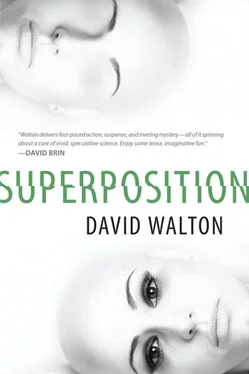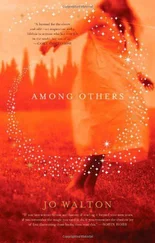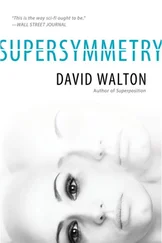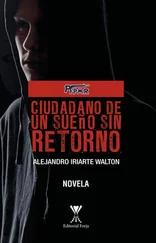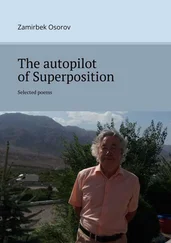He held the gyroscope upright on the tabletop. Without the string, there was no way to set the gyroscope spinning. When Brian let go of the wheel, however, it started spinning on its own. He removed his hand, and it kept going, precessing with a slight wobble, but otherwise stable. My practical mind looked immediately for the power source, thinking that he might have switched the gyroscope for one with an ingeniously hidden battery and motor, but as far as I could tell, it was the same steel and plastic model, simple and cheaply made. There was no room for a power source. Despite this, the gyroscope kept spinning.
Elena started to say something, but Brian held up his hand, and we kept watching. Two minutes went by, and it didn’t slow down. Not even a string-pulled gyroscope went on for that long without losing momentum. Three minutes went by. Four.
Finally, Elena reached out and snatched the gyroscope, her fingers stopping the spinning wheel. Her breathing was hard, and her eyes bored into Brian’s.
“Maybe it’s better if you tell us,” she said.
DOWN-SPIN
“All rise!“
The court officer bellowed the phrase, which he’d probably been calling for most of his adult life. “Court is now in session for the People versus Jacob Kelley, the honorable Ann Roswell presiding.”
The federal courthouse in Philadelphia was a beautiful building of stone pillars and balconies, only slightly marred by the more functional modern office buildings grafted onto the back. A similar fusion of old and new reigned indoors, with marble staircases adjoining handicapped-accessible elevators. Courtroom five, where the marshals had led me and then removed my handcuffs, was a high-ceilinged space with wood paneling, tall windows, and oil paintings on the wall. After months of procedure by lawyers on both sides, my trial for the murder of Brian Vanderhall was finally about to begin.
I missed Elena. I missed my children. I wished there was someone in the packed courtroom viewing area who was on my side. I was also tired of waiting, and I was glad it would soon be over, one way or another. It had been four months since Brian had first appeared at my front door in his flip-flops and ruined my life. Now, finally, we would see what a jury of my peers would think of my story.
My lawyer, Terry Sheppard, sat next to me at the defense table. He had a handlebar mustache and wore leather boots. He looked like he’d be more at home on a horse than in the courtroom, and the truth was, I had no idea if he was any good or not. I’d picked him because, of all the sharply dressed sharks that had paraded through the prison meeting room to show off their sleek folios and tailored suits, Terry Sheppard stood out. He didn’t try to impress me with his resume or his Harvard vowels. He was simple; a straight shooter. I trusted him.
Judge Roswell was in her sixties, with a kind face and pleasant manner. I wanted to think that was a good sign, but I doubted it. Terry said Roswell had a reputation for being tough, and as a former prosecutor, she wasn’t inclined to sympathize with the defense. For nearly an hour, she talked to the jury about their responsibilities, introduced the two sides in the courtroom, and explained to them that only what was spoken into the record by sworn witnesses—not the opening or closing arguments by counsel—was to be considered as evidence in their deliberations. She was articulate and engaging, but also severe in her warnings that they were to avoid the media in this highly-publicized case.
Finally, she addressed the prosecutor. “Mr. Haviland,” she said. “Your opening statement.”
David Haviland stood and faced the jury. Camera flies hovered not far from his face, and I wondered how he resisted the urge to swat at them. He was well-dressed, at ease in a suit, with the voice of a newscaster. Worse, he had the air of a principled man, a man who might have made a killing as a defense attorney but who had chosen to be a prosecutor out of a sense of conscience. I might have been impressed with him myself, if he weren’t trying to get me sent away to prison for life.
“Ladies and gentlemen,” he said, pivoting and raising his hands. “This case is about murder.” The courtroom was packed with journalists and gawkers, but Haviland addressed himself to the jurors, not to the crowd. I studied them—six men and six women of a variety of ages and races—trying to gauge whether they were likely to be sympathetic or not. It was difficult to tell.
“Murder, pure and simple,” Haviland continued. “The taking of another man’s life. You have never met Brian Vanderhall, and now you will never get the chance, but let us not forget that he was a very real person. Just like your own husbands or fathers or sons. Was he a flawed person? Perhaps. Aren’t we all? That doesn’t mean that at thirty-eight years old, he deserved to have his life torn away from him.
“Mr. Sheppard is going to try to convince you that this case is about technology. He’s going to make your mind spin with words like ‘quarks’ and ‘leptons’ and confuse the facts with expert testimony about science that only a few people in the world understand. It’s nothing more than a conjuror’s show, designed to distract you from the evidence. And the evidence, ladies and gentlemen, is very clear. The facts will show you that Mr. Jacob Kelley murdered Brian Vanderhall in cold blood.” As he said my name, Haviland leveled an accusing finger at me. I wondered if they taught him to do that in law school, or whether he’d just picked it up from the movies.
“Your task, ladies and gentlemen, is to find the truth. In our great country, we don’t believe the highly educated or the very rich are more qualified to find the truth than you are. Truth is something we can all recognize and understand. That’s why we choose to put the safety of our homes and neighborhoods in your hands. We trust you to have the courage to convict Mr. Kelley”—the pointing finger again—“of the heinous crime of murder.”
One juror’s eyebrows furrowed slightly, and I thought Haviland might have gone a bit too far with the word heinous . If he wanted to project himself as a man of the people, he was going to have to keep his vocabulary down.
“You’ve all heard the term ‘beyond reasonable doubt,’” Haviland continued conversationally, starting to pace a little and rub his chin. “I want to explain to you what that means. Sometimes people get the idea that you can’t convict a man unless there is no possible way he could be innocent. That’s not true. The word reasonable is crucial: Is it reasonable to think that Jacob Kelley is innocent? Given the amount of evidence that you will see, would that evidence be enough to convince you, as a reasonable person, to take action on an important matter in your own life? That’s what the law means, and Judge Roswell will tell you the same thing. Even Mr.—”
“Excuse me, councilor,” the judge interrupted. “You have a great deal of latitude in your opening statement, but I am going to ask you to refrain from giving my opinion, about which you can have little insight.”
Haviland was instantly contrite. “My apologies, Your Honor.”
“Members of the jury,” the judge went on. “I will remind you that opening statements are not evidence, nor are they law. They are an opportunity for the councilors to introduce their cases to you, but you are not to hold their words as having any weight in this case. The witnesses they call will provide the evidence, and I will explain the law.” She nodded at Haviland. “You may proceed.”
“Thank you, Your Honor,” Haviland said, although he looked like he’d swallowed something unpleasant.
He continued in the same vein, but with some of the wind taken out of his sails. I worked hard to maintain a grave demeanor. Terry, sitting next to me, apparently had no such scruples and leaned back with a wide grin on his face.
Читать дальше
